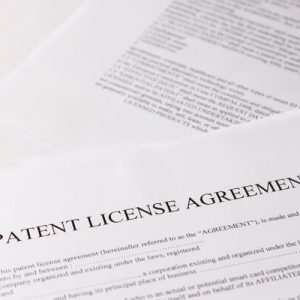
The new unitary patent and the associated court (UPC) are expected to come into existence at the start of 2017. The new regulations also have consequences for new and existing licence agreements. The most important changes are listed below.
The choice for a unitary patent or a classic European patent has consequences for the applicable law, the issuing and infringement proceedings and costs. The unitary patent will, for example, be subject to the UPC, while cases regarding European patents will, for the time being, be brought before a national court. The owner of the right is the party that makes the decision, unless otherwise agreed in the licence agreement.
Infringement actions
In accordance with Article 47 Paragraph 2 of the UPCA (Unified Patent Court Agreement), the treaty that lays down the rules relating to the establishment and functioning of the UPC, the exclusive licence holder of a European patent or a unitary patent shall be entitled to bring an independent infringement action before the UPC, unless the licence agreement prevents this. On the other hand, a non-exclusive licence holder cannot, in principle, bring an infringement action before the UPC unless the licence agreement specifically grants him that right. Parties are therefore advised to refer to their licence agreements and to amend the section relating to the licensee’s right to take action. The owner of the patent can always intervene in a case that has been initiated by a licensee. It may be the case that the parties wish to rule out that possibility; that must also be provided for in the licence agreement.
Opt-out
In licence agreements, attention should also be paid to the right of the owner or owners to request a so-called opt-out. The consequence of such an opt-out is that the proceedings relating to existing European patents cannot be handled by the UPC; only the national courts are authorised to do so. An opt-out applies for the life of the patent but can be revoked at a later date (Article 83 Paragraph 4 of the UPCA). If the owner of the right requests an opt-out, the exclusive licensee can no longer carry out an independent action.
Applicable law
In so far as the applicable law for the licence agreement is concerned, parties can also make their own legal decision under the unitary regime. However, the validity of the licence, the legal effects of the licence and the question as to whether the licence continues to exist if the patent is transferred, are determined in accordance with the law that is applicable to the patent. This is the law of the contracting state where the applicant for the patent is established, or has its headquarters, on the date on which the European application is submitted; otherwise German law shall apply. It is then also necessary to check that no other law applies to the licence and what the implications of this are. In a nutshell: the new UPC regulations require careful checking of licence agreements.
For the current status of the unitary patent and the UPC, please refer to our Dossier.

